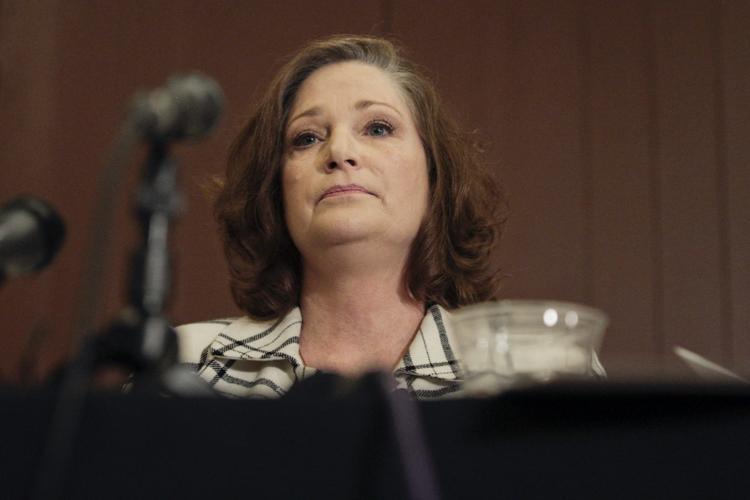|
LDS Church seeks to dismiss sexual abuse case
By Genelle Pugmire
The Church of Jesus Christ of Latter-day Saints filed a motion for dismissal Wednesday in a sex abuse case of a woman who accused a former Provo Missionary Training Center president of sexually abusing her. McKenna Denson alleges in her federal lawsuit against the church and the former president, Joseph L. Bishop, that he sexually abused and even raped her while she was at the MTC in 1984. The church says all five causes of action, or accusations, in Denson’s case are subject to either a three-year or a four-year statute of limitations. The five causes she is implicating the church in includes: sexual assault; negligent infliction of emotional distress, intentional infliction of emotional distress, common law fraud, and fraudulent concealment. “Ms. Denson’s first three causes of action are subject to Utah’s ‘catch all’ statute. Although a defense based on statutes of limitation is considered an affirmative defense, they may be asserted in a motion to dismiss under circumstances like the ones here,” church legal document says. The church believes her time to bring those claims expired a long time ago. Church attorneys concluded, “The purpose of statutes of limitations is clear —they are legislative expressions of public policy that encourage potential plaintiffs to bring their actions promptly, before the causes get stale from lost evidence or faulty memories. Here, Ms. Denson waited decades to bring the causes of action in the Complaint, and they are time barred as a result. The Court should dismiss this action with prejudice.” Denson filed the lawsuit in U.S. District Court for the District of Utah on April 14 against the LDS Church and Bishop, for reportedly covering up her sexual assault that occurred in the 1980s. At a public press conference after she filed the lawsuit, Denson said she stood hand-in-hand with other survivors of abuse to call the church to change its policy and culture surrounding sexual assault. “Right now, the gates are open and a tsunami is coming,” she said. The lawsuit calls for policy changes within the church, encouraging church leaders to call police rather than the church’s help line if a church member alleges sexual assault. The lawsuit also says church members accused of sexual misconduct should be removed from exposure to potential victims. Denson has told authorities that Bishop reportedly tried to kiss her in a room at the MTC before forcibly undressing and raping her. Denson met with Bishop in 2017, at which time he was 85, and claimed she was a reporter who wanted to speak to him about his church service. She instead confronted him about the 1984 incident, and he reportedly said he committed all the acts she described, omitting the rape and layout of the room. He also apologized for his actions. Denson, who lives in Colorado, has said she made multiple reports about the sexual assault to the LDS Church and that Bishop has never been disciplined. Denson had been interviewed by the Brigham Young University University Police that helps with security issues at the MTC. Recordings of interviews with Denson have been the subject of a court action over state open-record laws. On Friday, a Utah judge ruled BYU University Police acts as a government entity and is therefore subject to state open-record laws. “The court concludes that when the BYUPD is acting as a law enforcement agency and/or its officers are acting as law enforcement officers, it is a government entity subject to GRAMA,” Judge Laura Scott ruled Friday morning in Third District Court. The ruling comes two years after The Salt Lake Tribune filed a lawsuit against the university, claiming BYU police should be open to public records requests as it has law enforcement authority under state law. The university, owned by the LDS Church, argued that it is exempt from the state’s Government Records Access and Management Act, or GRAMA, as the police force is part of a private university. “BYU respects the judicial process, but we’re disappointed by this preliminary decision,” said Todd Hollingshead, a spokesperson for BYU at the time of the ruling. “The court said in today’s minute entry that it expects to issue a detailed ruling and order in the next few days. BYU will wait until that order is issued to determine its next steps related to this decision and any other State Records Committee decisions.” Until the ruling, BYU officers could stop, search and arrest like state police department officers but did not face the same transparency requirements. The recent ruling does not mean tapes involving the Denson case will be automatically released. Contact: gpugmire@heraldextra.com
|
.
Any original material on these pages is copyright © BishopAccountability.org 2004. Reproduce freely with attribution.
